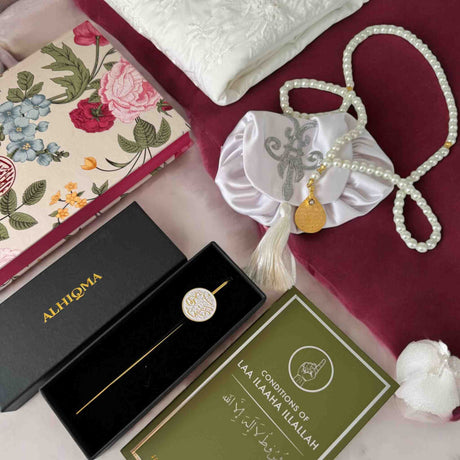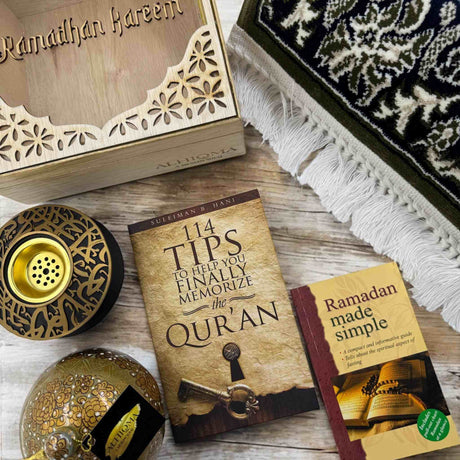
Quranic Versus Importance of Good Character,Kindness and Righteousness
By Sheela M.Ahmed
8 powerful Quran verses about good character, kindness, and humility with practical applications for modern Muslim families seeking righteous living.

By Sheela M.Ahmed
8 powerful Quran verses about good character, kindness, and humility with practical applications for modern Muslim families seeking righteous living.

By Sheela M.Ahmed
7 powerful verses from the Quran about gratitude that transform perspective and invite divine increase in your daily life.
Read more
By Sheela M.Ahmed
Discover 7 powerful Quran verses about life's purpose with practical guidance for modern Muslim families seeking meaningful, faith-centered living.
Read more
By Sheela M.Ahmed
Discover 7 powerful Quran verses about patience (sabr) with practical guidance for modern Muslim families seeking strength through daily challenges.
Read more
By Sheela M.Ahmed
Learn the powerful prophetic dua for trials that transforms hardship into hope and active trust in Allah's perfect plan.
Read more
By Sheela M.Ahmed
A beautiful dua to seek forgiveness for others and foster unity in the Muslim ummah.
Read more
By Sheela M.Ahmed
Muharram marks the Islamic New Year with sacred opportunities for fasting, reflection, and spiritual renewal. Learn how to embrace this blessed month meaningfully.
Read more
By Sheela M.Ahmed
Islamic wisdom for husbands on leading with kindness, mercy, and respect—practical guidance for modern Muslim families in Singapore.
Read more
By Sheela M.Ahmed
Find strength in Quran verses during difficult times. Islamic wisdom for hope, patience, and divine support when life feels overwhelming.
Read more
By Sheela M.Ahmed
Transform your Zulhijjah with authentic Islamic practices, practical tips for busy families, and premium spiritual tools from Singapore's trusted source.
Read more
By Sheela M.Ahmed
Explore 7 transformative Quranic verses for rizq that have guided prophets and continue to bring peace to modern Muslim families seeking Allah's provision.
Read more
By Sheela M.Ahmed
Explore powerful verses on provision from the Quran with practical applications for daily life. Allah is the ultimate Provider for every aspect of our lives.
Read more
By Sheela M.Ahmed
Discover powerful duas from the Quran that bring peace during life's challenges, blending timeless Islamic wisdom with contemporary Southeast Asian Muslim life.
Read more